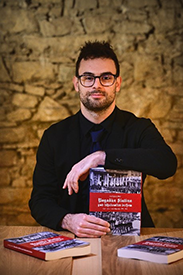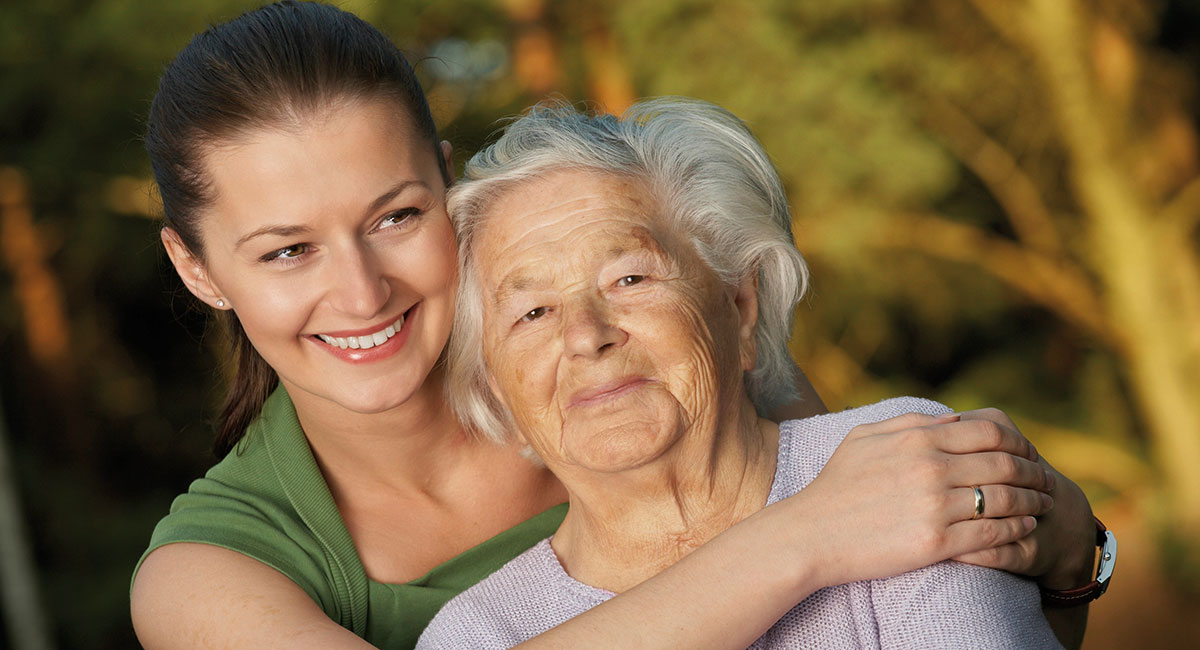Social Gerontology
Alma Mater Europaea - ECM offers an innovative doctoral program for preparing students to address issues facing an aging population.
The emphasis of the graduate program in Social Gerontology is on helping students understand the process of aging from an intergenerational symbiosis perspective. The program positions graduates to pursue their passion for policy and research while studying the mechanics and mysteries of longevity, aging and population health. The social gerontology program prepares graduates to become leaders who effect policy changes at the local and national levels alike. It also prepares graduates for careers in gerontology research.
Academic excellence. Innovative programs. Real-world connections. First-class educational experience. Impact your career. Study in the heart of Europe.
Courses
SOCIAL GERONTOLOGY SYLLABUS - 1st YEAR
| Course | ECTS | ||
|---|---|---|---|
| Total 1. year | 60 | ||
| Total per study program | 180 | ||
| Mandatory courses | |||
| 1 | Social Gerontology | 10 | |
| 2 | Qualitative methodology | 10 | |
| 3 | Social construction of aging | 10 | |
| 4 | Guidance of diversity and competency research modelling | 10 | |
| 5 | Impact of modifications on organization in Social Gerontology | 10 | |
| 6 | Doctoral seminar: Preparation of doctoral thesis application | 10 | |
SOCIAL GERONTOLOGY SYLLABUS - 2nd YEAR
| Course | ECTS | ||
|---|---|---|---|
| Total 2. year | 60 | ||
| Total per study program | 180 | ||
| Mandatory courses | |||
| 7 | Gerontological and anthropological anlyses interpretations | 10 | |
| 8 | Elderly person, family and social network | 10 | |
| 9 | Gerontological questions development strategies | 10 | |
| Elective courses (student chooses 3) | |||
| 1 | Demographic and gerontological perspectives | 10 | |
| 2 | Sociology of aging | 10 | |
| 3 | Gerontological processes and gender | 10 | |
| 4 | Philosophy and ethics in old age | 10 | |
| 5 | Old age quality of life | 10 | |
| 6 | Social management | 10 | |
| 7 | Creative types of team work | 10 | |
| 8 | Medical aspects of aging | 10 | |
| 9 | Medicalization of aging | 10 | |
| 10 | Economic aspects of elderly care | 10 | |
| 11 | Nonprofit sector management | 10 | |
| 12 | Social Gerontology crisis management | 10 | |
| 13 | Urban and architectural integration of the elderly | 10 | |
| 14 | Volunteering for intergenerational symbiosis | 10 | |
| 15 | Types of palliative assistance | 10 | |
| 16 | Scientific writing | 10 | |
| 17 | Leisure time organization | 10 | |
SOCIAL GERONTOLOGY SYLLABUS - 3nd YEAR
| Course | ECTS | ||
|---|---|---|---|
| Total 3. year | 60 | ||
| Total per study program | 180 | ||
| DOCTORAL THESIS - MENTORING | |||
| 10 | Preparation and production of doctoral thesis seminar | 15 | |
| 11 | Preparation and production of doctoral thesis 45 | 45 | |
Faculty

Lectures at study programmes: Strategic Communication Management (Methodology of producing academic work; PhD programme) and Social Gerontology (Seminar for producing and preparing a doctoral dissertation; PhD programme)
Daniel Siter (1992) is a Slovenian historian, researcher, publicist, lecturer and PhD Candidate at the University of Alma Mater Europaea – Faculty of Humanities, Institutum Studiorum Humanitatis, Ljubljana (AMEU – ISH), where he is a member of the programme group »Research of Cultural Formations« (ARIS, P6-0278) and has habilitation title of an assistant for historiography. He also collaborates with the International Research Centre for Second World War Maribor as a leading researcher, lecturer and author on Nazi prisoner-of-war camp (Stalag XVIII D / 306 in Maribor), its destructive operation, command and everyday life.
At the Faculty of Humanities, he is working on a doctoral research project and dissertation titled »Subversive Activity of Swabian-German Cultural Association and the Role of its Members on Slovenian Soil Between 1922–1945.«
During his master's study at the Faculty of Arts in Ljubljana, he actively participated in a four-year research project on occupation (state) borders in occupied Slovenia (1941–1945). His extensive involvement in the research project and additionally master's thesis (for which he was nominated for the Slovenian Prešeren Award), included alongside research work in the archives and fieldwork (using metal detectors and LIDAR technology), gathering more than 25 oral testimonies of surviving eyewitnesses (through in-depth interviews) of the Nazi war terror, genocide, implementation of Germanization and denationalizing policy and characteristics of everyday life in occupied Slovenia.
Between 2021 and 2022, he was a member of Slovenian-Hungarian Bilateral Research Project Cooperation.
His research focuses on contemporary Slovenian history of the 20th century, primarily the Second World War in Slovenia and the pre-war and post-war eras, focusing on military, political, economic, cultural and everyday life aspects. He is an expert on the life of Adolf Hitler, the history of Nazism, the Nazi prisoner-of-war camps, Kulturbund, the German minority in the Kingdom of Yugoslavia, occupation borders, the second world war and the German occupation policy in Slovenia. He has extensive experience in research work in archives, museums, libraries and research institutions abroad and in Slovenia, as well as performing in-depth interviews with the survivors of the Second World War.
His bibliography includes more than 120 units, including a scholarly book, many original scholarly articles in respected newspapers and magazines for Slovenian historiography and editorship of the conference Book of Abstracts (2023 & 2024). He gave many invited published lectures, ceremony keynote and public speeches, book reviews and comments, media interviews and podcasts on radio and TV, and has participated in international conferences, symposiums and round tables (Prague, Johannesburg, Canterbury, Metlika, Zagreb, Maribor …). He regularly organises, moderates and chairs conferences.
He authored and publicly presented five original exhibitions (the most recent at Victory Museum in Moscow in 2024 based on a special invitation by the latter). He also published a highly acclaimed pioneer and one of the best-selling scholarly books in Slovenian historiography (in two editions in 2021 and 2023 under the publishing house of AMEU – ISH), Rogaška Slatina Under the Swastika: Spa Resort During the Occupation of 1941–1945, which received immense success, interest and inquiries, media publicity, coverage and attention, positive reviews, readership approval and positive public response and was immediately sold out. His book, on more than 400 pages, is a product of extensive, complex, and in-depth four-year research, for which he received an official municipality reward and recognition from Slovenian President Borut Pahor and was nominated for a person of the year on the municipality level.
For further details, please see:
Advantages
Alma Mater Europaea is committed to providing students with a broad theoretical understanding of lifespan development. Ph.D. students will take a wide variety of courses, work closely with a faculty mentor, and have the opportunity to focus on a specific area of interest.
All our lectures are filmed and e-learning supported. You can watch them in live stream and re-run them at home as many times as you like.
Grants & Partnerships
Employability
Ph.D. graduates will enter the workforce armed with the highest-level training available in gerontology and will be prepared to enter careers in research, education, or service, with opportunities available in:
- Leadership positions in the planning, administration and evaluation of programs in the private and public sectors
- Executive positions in the delivery of direct services to older adults and their families
- Policy and advocacy work
- Scientific research and study

